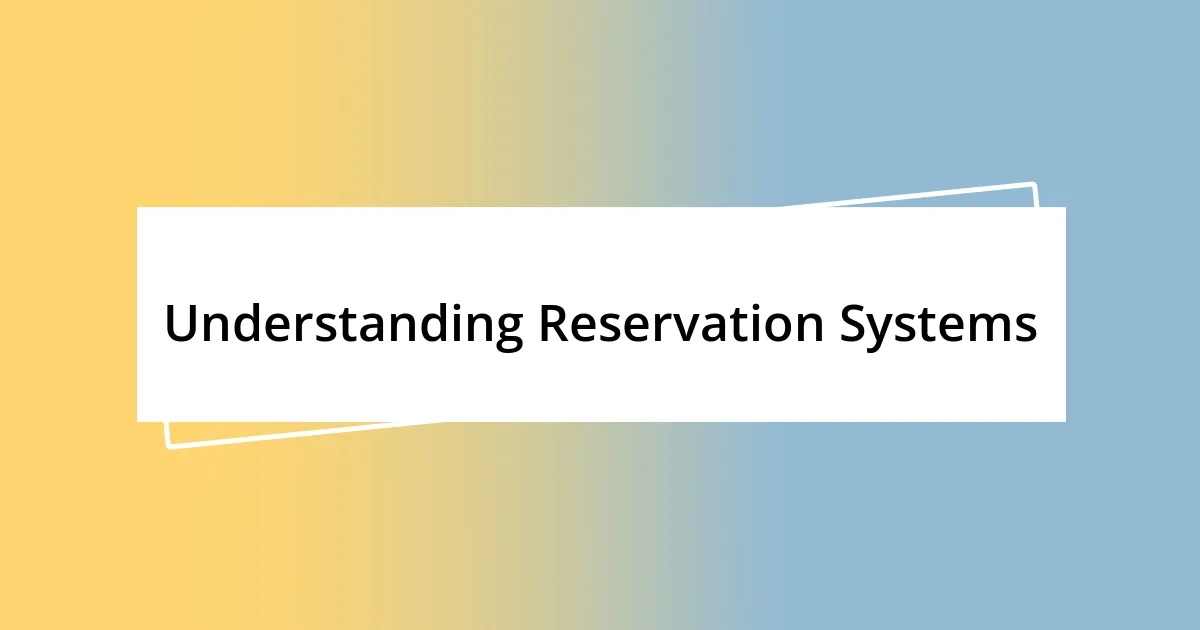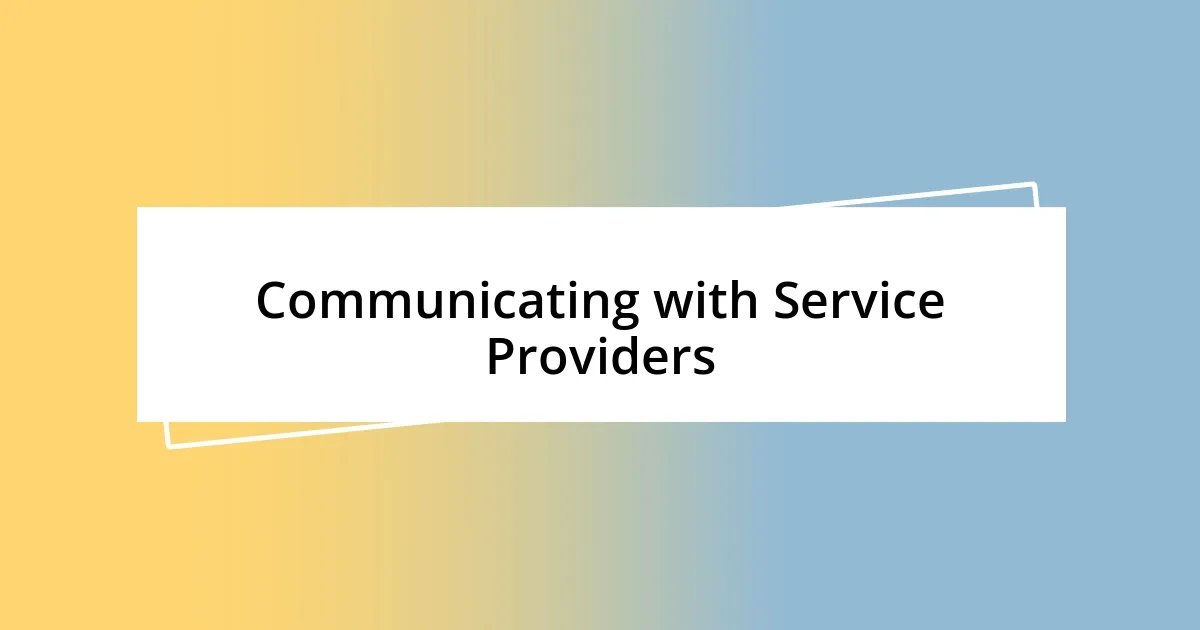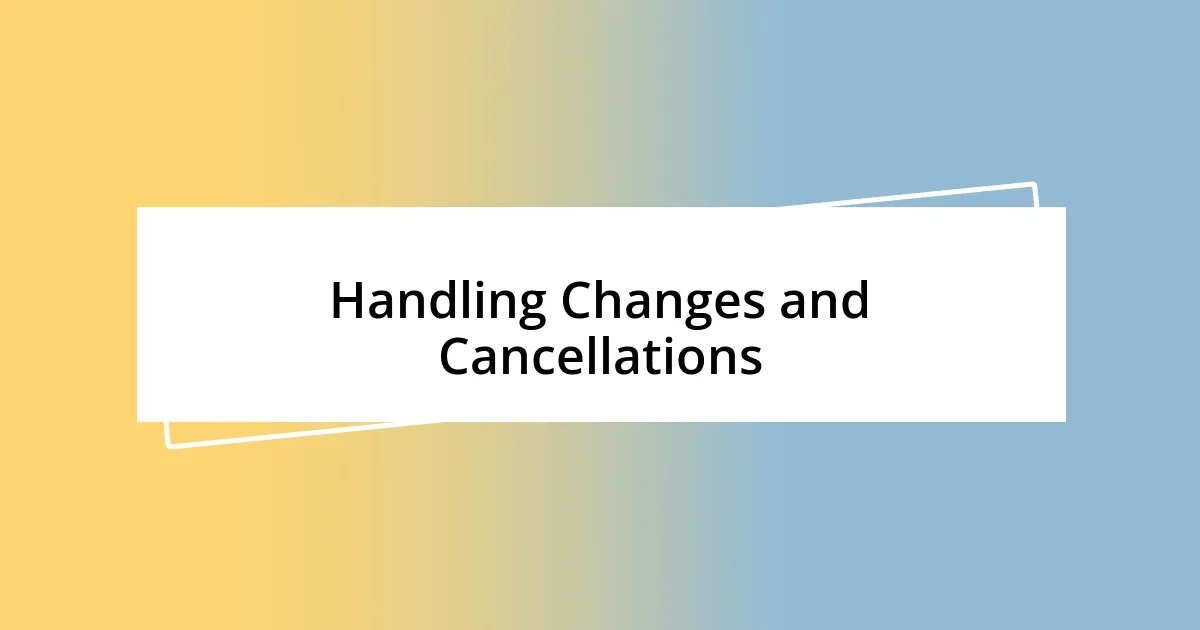Key takeaways:
- Understanding the intricacies of reservation systems helps streamline the booking process and reduce stress.
- Choosing the right platform involves considering factors like user-friendliness, cancellation policies, and customer support.
- Setting clear travel dates enhances planning, access to deals, and better availability while avoiding confusion.
- Effective communication with service providers can lead to personalized offers and smoother adjustments to reservations.

Understanding Reservation Systems
Understanding reservation systems can feel overwhelming at first. I remember my first experience trying to book a restaurant table online—a flurry of options, dates, and times. It almost felt like navigating a maze, and I found myself asking, “Why can’t this just be simple?”
Diving deeper into what makes up a reservation system, I’ve come to appreciate how these intricate platforms help businesses manage demand efficiently. They often run on algorithms that predict customer behavior, balancing available spots against anticipated foot traffic. Have you ever wondered how some places always seem to have a table available right when you want one? It’s all about the data at play!
In my experience, understanding the nuances of different reservation systems can save you a lot of frustration down the line. For instance, some systems allow you to modify bookings easily, while others might require you to jump through hoops. Knowing these little details can turn what once felt like a stressful task into a seamless part of your planning.

Choosing the Right Platform
When it comes to choosing the right platform for reservations, I find that not all systems are created equal. Some platforms cater better to certain types of venues or services, and I’ve discovered that knowing what kind of experience you want can really narrow down your options. For example, I once booked a last-minute hotel stay using a popular app, only to realize that it didn’t offer flexible cancellation policies. That stress taught me to look deeper into a platform’s features before committing.
Here are some key factors to consider when selecting a platform:
- User-Friendly Interface: A simple navigation can save you from frustration.
- Cancellation Policies: Check if the platform has flexible options to avoid future hiccups.
- Customer Reviews: Read feedback from other users to gauge reliability.
- Support Services: Responsive customer support can make a world of difference when you need help.
- Payment Options: Ensure the platform offers payment methods that work for you, especially for large groups.
Taking the time to weigh these factors can ultimately lead to a smoother reservation experience. After all, nobody wants an added layer of stress when all you’re aiming for is a relaxing night out!

Setting Clear Travel Dates
Setting clear travel dates is crucial for streamlining your reservation process. I remember the excitement of planning a trip only to find myself tangled in a web of conflicting dates. When my friends and I decided to visit a resort, our initial discussions led to confusion. It wasn’t until we settled on specific dates that we could start confidently booking accommodations and activities. This clarity not only reduced stress but also created a focused itinerary that everyone could get behind.
Choosing specific travel dates allows you to compare various options more effectively. For instance, I once had to choose between two popular hotels for a beach getaway. Initially, I hesitated because our travel dates were flexible, but once I decided on a definite timeframe, I could spot the better deals for that period. Those extra savings can sometimes lead to an upgrade in your experience, like a beachfront room instead of a standard one!
Moreover, clear travel dates open the door to better availability and planning. I’ve seen how hotels and restaurants often offer discounts for midweek stays or off-peak seasons. By knowing exactly when I wanted to go, I could leverage these opportunities to enhance my adventure. Have you ever found yourself wishing you had booked something earlier? Setting dates in advance not only helps organize your itinerary but also allows you to explore special promotions.
| Advantages of Setting Clear Travel Dates | Consequences of Not Setting Clear Travel Dates |
|---|---|
| Better organization and planning | Increased stress and confusion |
| Access to special offers | Missed opportunities for discounts |
| Streamlined comparison of options | Limitations in choices and availability |

Creating an Organized Itinerary
Creating an organized itinerary is essential for ensuring a smooth travel experience. In my experience, I start by jotting down all the key details—flights, accommodations, and activities—on a shared document. This method helps me visualize the entire trip as a cohesive whole, preventing those moments where I realize I’m double-booked or have missed an important reservation. Have you ever scrambled to keep track of your plans? A simple list can save you a lot of heartache!
Once, I planned a weekend getaway with friends and opted for a neat itinerary template I found online. It included all our reservation confirmations alongside timings for each activity. The result? We spent more time enjoying ourselves rather than stressing about what to do next. I can’t stress enough how this level of organization can make a difference. Every time we checked off a completed item, I felt a wave of relief. Doesn’t that sound gratifying?
Another useful tip is to color-code your itinerary based on different categories like travel, lodging, and activities. I remember using this technique for a family road trip where things could have easily gotten chaotic. The visual distinction helped us quickly find what we needed and ensured no detail slipped through the cracks. Wouldn’t you agree that a little organization goes a long way in enhancing your travel experience? It’s these small efforts that pave the way for a genuinely enjoyable journey.

Communicating with Service Providers
Effective communication with service providers can significantly enhance your reservation experience. I recall when I was booking a group tour for my family; reaching out to the provider was a game-changer. I made it a point to express our specific needs and ask questions about group discounts, which led to personalized offers that fit our budget perfectly. Have you ever thought about how a simple conversation can open doors to unexpected benefits?
In another instance, I remember needing to change a dinner reservation due to a scheduling conflict. Instead of sending a half-hearted email, I decided to call. Engaging directly allowed me to explain our situation, and to my surprise, the restaurant staff was incredibly understanding and accommodating. They even suggested alternative seating arrangements that enhanced our dining experience. How often do we underestimate the power of a voice on the other end?
Building rapport with service providers can also ease any last-minute stress. I’ve learned to remember names and express gratitude during our conversations. Once, when checking into a busy hotel section, the front desk attendant recognized me from a previous visit. This sparked a warm exchange, leading to a complimentary upgrade that truly made my stay memorable. It’s interesting how a little kindness can transform interactions; don’t you think that taking the time to connect personally can lead to delightful surprises?

Utilizing Confirmation and Follow-ups
Utilizing confirmation emails and follow-up calls can be a game changer when it comes to stress-free reservations. I remember a time when I received a booking confirmation for a hotel stay—but the room type assigned was not what I had requested. Thankfully, I checked my email right after the reservation and saw that my inquiry about a king-sized bed was noted. A quick follow-up call cleared everything up, and it gave me peace of mind knowing that my needs were prioritized. Have you ever relied solely on the confirmation, only to find discrepancies later?
A few days before a big trip, I like to send follow-up emails to confirm details—especially for transportation arrangements. I once had a travel company send a reminder, but I followed up directly to confirm the pickup time. That proactive approach led me to discover the driver was running late due to severe weather. Thanks to that quick chat, I knew to adjust my plans, and I avoided unwanted panic on the day of departure. Isn’t it reassuring to take control of situations like that?
Also, don’t underestimate the importance of keeping printed or digital copies of all your confirmations handy. During one of my travels, a hotel’s system crashed just as I arrived, and they couldn’t find my reservation. Luckily, I had the confirmation saved on my phone, which allowed me to secure my room efficiently, even while the staff was initially flustered. It’s moments like these that remind me: having that backup gives you an edge, especially in unpredictable situations. Have you ever been in a spot where your preparation was your savior? I can certainly say that having confirmations allows me to navigate unforeseen hurdles with confidence.

Handling Changes and Cancellations
When it comes to handling changes and cancellations, flexibility is key. I once had to cancel a weekend getaway due to an unforeseen work commitment. Instead of panicking and rushing through the process, I took a deep breath and called the hotel directly. Their willingness to waive the cancellation fee after I explained my situation reminded me that a little honesty often goes a long way. Have you experienced the relief that comes from clear communication with service providers?
I’ve also found that knowing the cancellation policies in advance can save a lot of heartache. I remember booking a non-refundable flight for a trip I was eagerly anticipating. Just days later, a family emergency popped up. Understanding the nuances of the policy helped me navigate the situation: I was able to transfer my ticket for a small fee rather than lose the entire fare. It’s empowering to be informed—have you ever noticed how knowledge can ease the burden of unexpected changes?
Sometimes, rescheduling can actually turn into a more positive experience. I once had to change a concert reservation, and the staff offered me VIP seating for my new date. That moment taught me that not every alarm bell signifies disaster; sometimes, it’s an opportunity in disguise. Have you ever approached a change with hesitation only to find a silver lining?












